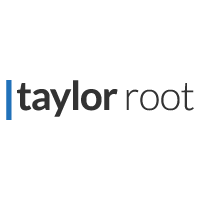
General counsel | Danone Nutricia MENA









Islam Abaza
General counsel | Danone Nutricia MENA
How do you approach managing legal aspects during periods of instability or crises, and how does your legal strategy align with the broader business strategy to ensure the organisation’s resilience?
In periods of instability or crises, my approach to managing legal aspects is rooted in proactive risk management and strategic alignment with broader business objectives. At the Danone Legal Department MENA, we prioritise a comprehensive risk assessment to identify potential legal challenges early on. This involves close collaboration with cross-functional teams to ensure that our legal strategies are integrated with the company’s overall crisis management plans.
Our legal strategy is designed to be agile, allowing us to respond swiftly to changing circumstances. We focus on maintaining clear communication channels with all stakeholders, ensuring that legal considerations are factored into every decision. By aligning our legal strategy with the business strategy, we ensure that our actions support the organisation’s resilience and long-term sustainability. This alignment helps us navigate regulatory changes, protect our assets, and maintain our reputation, ultimately contributing to the company’s stability and growth.
What are the main cases or transactions that you have been involved in recently?
Recently, I have been involved in several significant cases and transactions that have had a substantial impact on Danone’s operations in the MENA region. One notable transaction involved recent donations to affected jurisdictions and the distribution of vital products. We finalised a major deal with the Ministries of Health in Egypt, the United Arab Emirates, and the Kingdom of Saudi Arabia. Additionally, we effectively managed all tenders across the cluster, leading to significant business growth.
Our most significant challenge and achievement was innovatively changing the legal structure of transactions, prompting competitors to follow suit. This not only enhanced our compliance with highly regulated commodities but also radically transformed market practices in the Gulf region. These efforts significantly contributed to Danone’s strategic objectives, necessitating meticulous due diligence and negotiation to ensure compliance with local regulations and alignment with Danone’s goals.
How do you measure the impact of ESG initiatives on the company’s overall performance and reputation?
Measuring the impact of ESG initiatives is essential for understanding their contribution to Danone’s overall performance and reputation. We closely monitor regulatory compliance and industry benchmarks to ensure that our ESG practices align with best practices and legal requirements. By integrating these measurements into our overall performance evaluation, we can effectively demonstrate the value of our ESG initiatives and their positive impact on both our business and society.
How have you integrated technology into your legal processes, and what impact has this had on efficiency and compliance?
Technology integration has been a game-changer for our legal processes at Danone. We have implemented advanced legal management software that streamlines contract management, compliance tracking, and case management. This technology enables us to automate routine tasks, reducing the risk of human error and allowing our legal team to focus on more strategic activities.
The impact on efficiency has been significant. We have observed a reduction in the time required to review and approve contracts, faster response times to legal inquiries, and improved accuracy in compliance reporting. Additionally, technology has enhanced our ability to monitor regulatory changes and ensure timely compliance, thereby reducing the risk of legal penalties. Overall, the integration of technology has not only improved our operational efficiency but has also strengthened our compliance framework, contributing to the overall resilience and success of the organisation.
What do you see as the major legal challenges for businesses in the region over the next five years, and how are you preparing to address them?
Over the next five years, businesses in the MENA region are likely to encounter several major legal challenges. One significant challenge is the evolving regulatory landscape, as governments in the region increasingly implement new regulations related to data protection, environmental sustainability, and corporate governance. Staying ahead of these changes will require continuous monitoring and adaptation of compliance strategies.
Another challenge is geopolitical instability, which can impact trade, investment, and supply chains. Businesses must be prepared to navigate these uncertainties by developing robust risk management frameworks and contingency plans. Additionally, the rise of digital transformation introduces legal complexities related to cybersecurity, intellectual property, and digital transactions. It is crucial to ensure that legal frameworks keep pace with technological advancements.
To address these challenges, we at Danone are investing in continuous legal education and training for our team to stay informed about regulatory changes and emerging legal trends. We are also enhancing our risk management processes by conducting regular scenario planning and stress testing. By leveraging technology, we are improving our ability to monitor and respond to legal risks in real time. These proactive measures ensure that we are well-prepared to navigate the legal challenges of the future while supporting the company’s strategic objectives.
What role does the legal department play in promoting and ensuring corporate social responsibility in your organisation?
The legal department at Danone plays a pivotal role in promoting and ensuring corporate social responsibility (CSR) within the organisation. We are actively involved in shaping and implementing policies that align with our CSR objectives, ensuring that our business practices are ethical, sustainable, and socially responsible.
One of our primary responsibilities is to ensure compliance with all relevant laws and regulations pertaining to CSR, including those related to environmental protection, labour rights, and anti-corruption measures. We collaborate closely with other departments to integrate these legal requirements into our operational processes, ensuring that CSR considerations are embedded in every aspect of our business.
In addition, the legal department provides guidance on best practices for CSR initiatives, helping to identify opportunities for positive social and environmental impact. We also play a crucial role in stakeholder engagement, ensuring transparent communication with regulators, investors, and the community regarding our CSR efforts and achievements.
By fostering a culture of compliance and ethical behaviour, the legal department helps build trust and credibility with our stakeholders. This not only enhances our reputation but also contributes to the long-term sustainability and success of the organisation. Our commitment to CSR reflects our core values and our dedication to making a positive difference in the communities where we operate.
General counsel and head of corporate compliance Middle East and North Africa | Danone
A bilingual Egyptian qualified attorney with tertiary qualifications in law, with around 20 years of post-qualified legal experience in three Gulf jurisdictions and Egypt. Currently the general counsel and head...
General counsel and Head of corporate compliance MENA | Danone
General counsel and head of corporate compliance | Danone